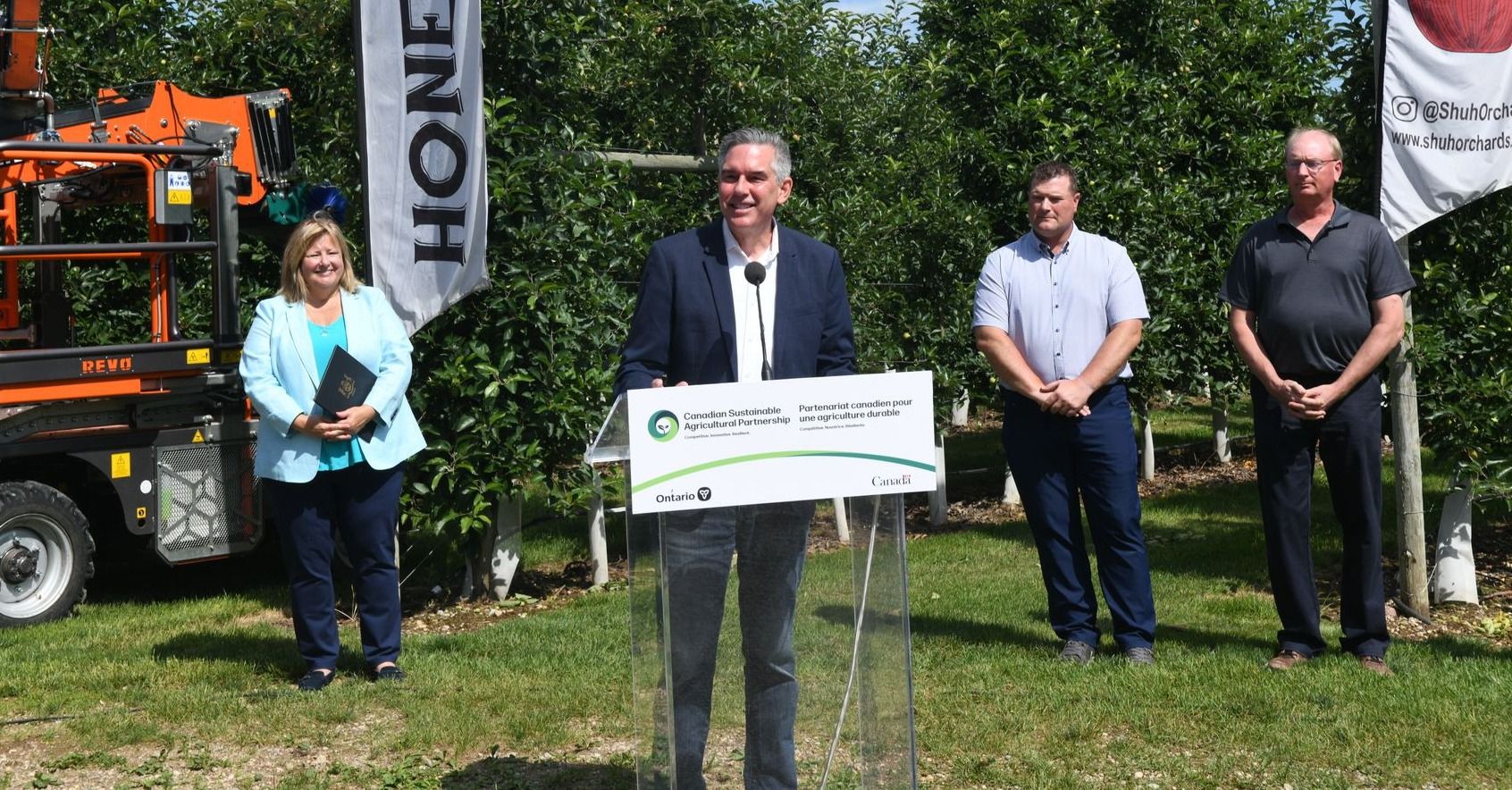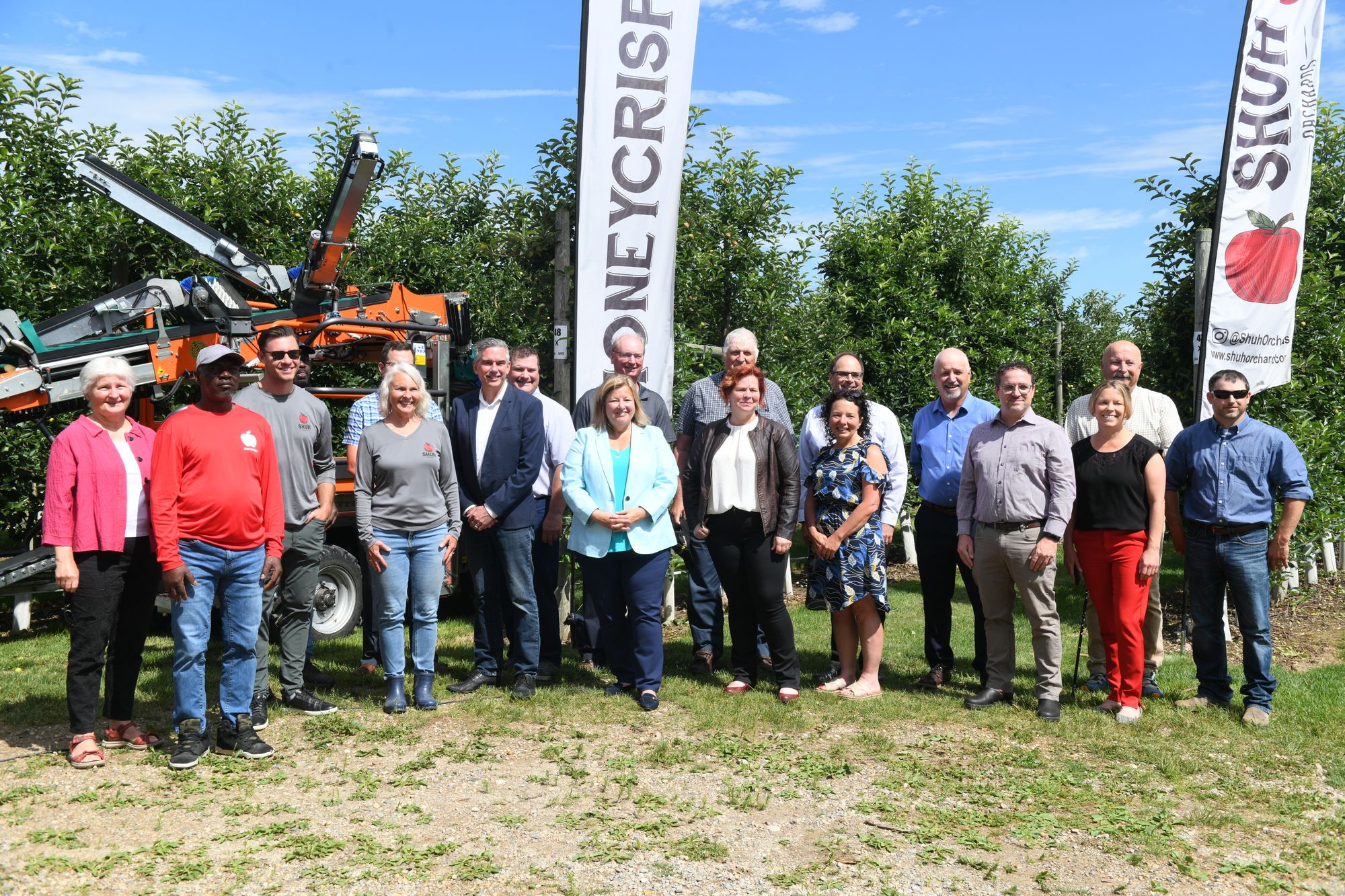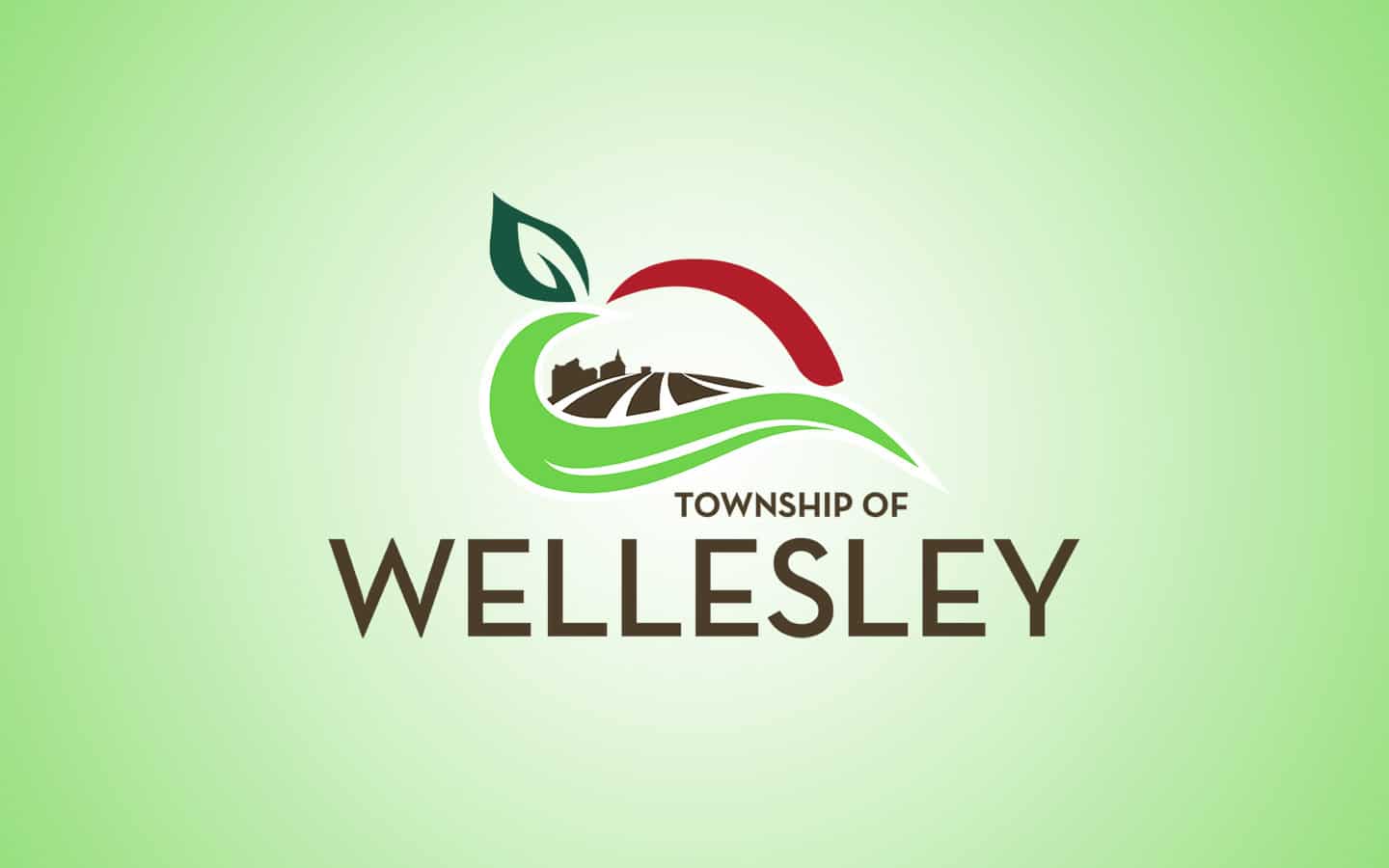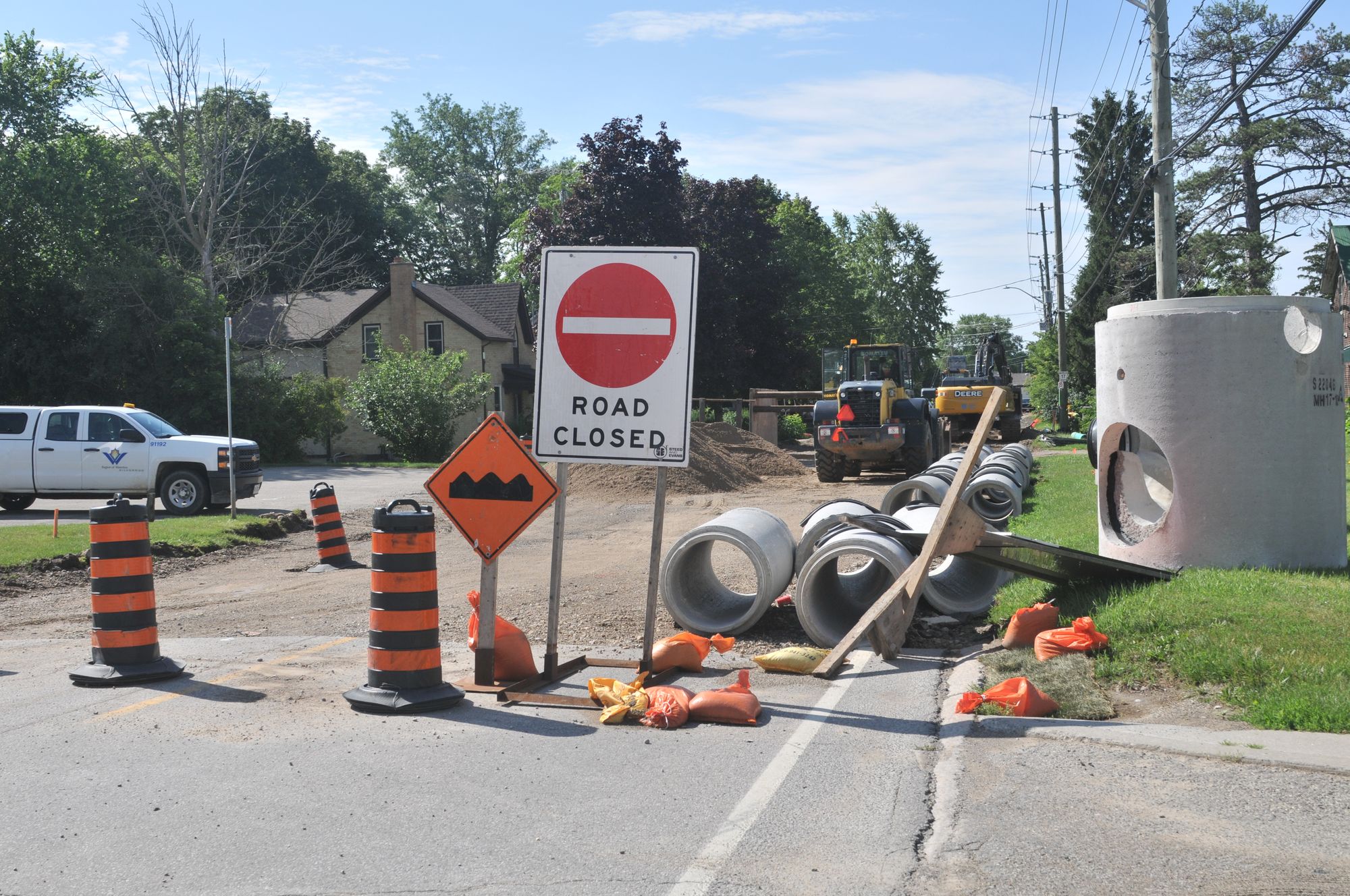Shuh Orchards in West Montrose played host Wednesday morning as the provincial and federal governments announced new funding for sustainable farming initiatives.
Ontario Minister of Agriculture Lisa Thompson was joined by Kitchener-Conestoga MP Tim Louis as she announced $68 million for two programs meant to help farmers make their lands more sustainable and resilient to climate change, and a third for agricultural sustainability research.
The funding is going to the Sustainable Canadian Agricultural Partnership, which is a renewal of the previous Canadian Agricultural Partnership. The funding will be divided into three streams including:
The Resilient Agricultural Landscape Program (RALP) with $56.7 million over five years. That will help farmers with projects such as reducing tillage, creating water retention ponds and other projects to reduce greenhouse gas emissions and sequester carbon.
The Agricultural Stewardship Initiative will provide $5 million this year for farmers to modify equipment and operating practices.
The expansion of the On-Farm Applied Research and Monitoring (ONFARM) program, with an additional $7 million over five years. The research is meant to improve soil health and water quality, and to communicate best practices to farmers.
“Farmers and growers are the best stewards that we have in the province of Ontario. And there’s much we can do when it comes to sequestering greenhouse gas emissions and carbon,” said Thompson at the event.
All three programs will be run through the Ontario Soil and Crop Improvement Association. Applications will be open for the Agricultural Stewardship Initiative funding beginning in September, and the Resilient Agricultural Landscape Program will be open for applications in October, said Andrew Graham, the executive director of the Ontario Soil and Crop Improvement Association.
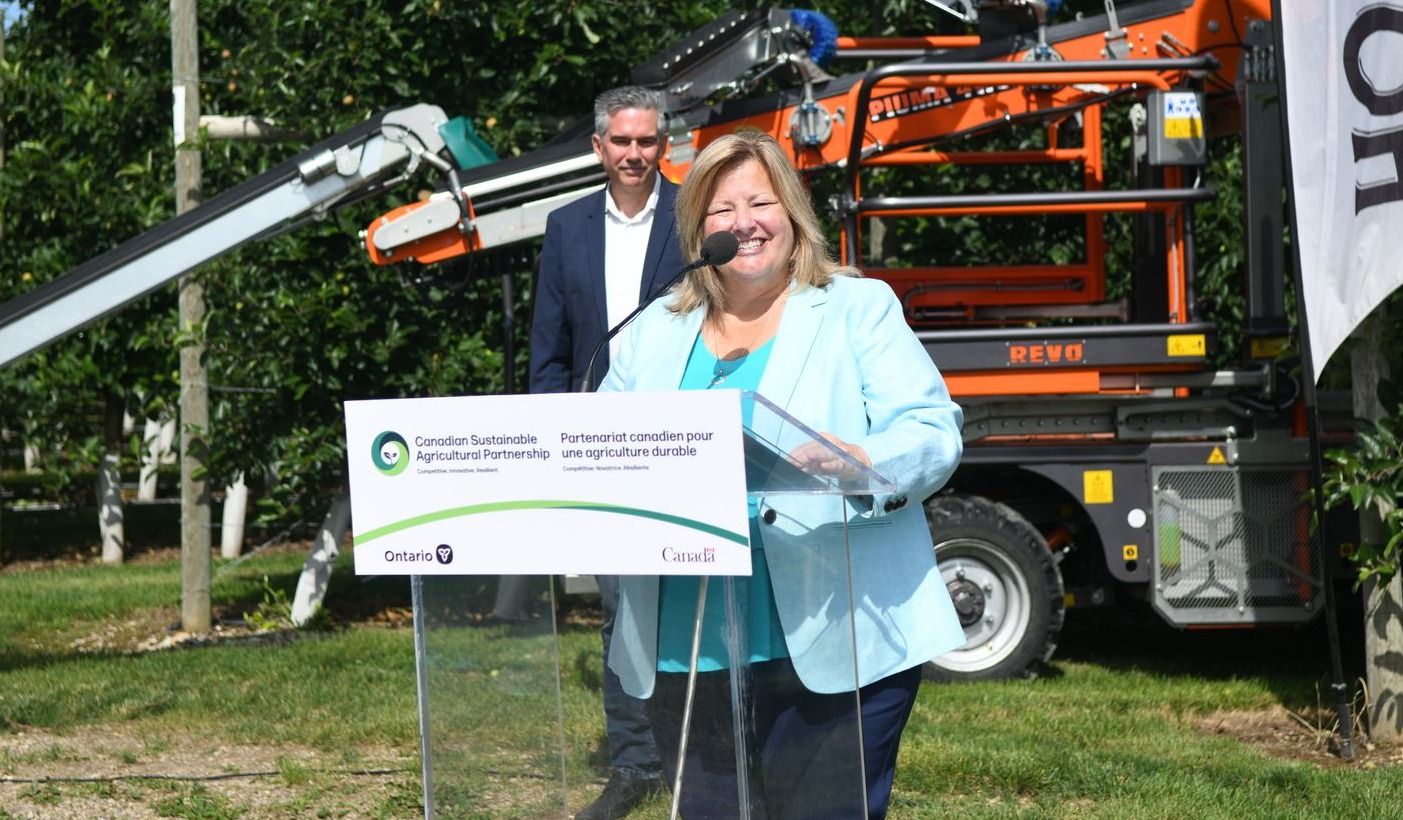
Graham says both the incentive programs are under development, and more information on the application process and eligibility will be available on the OSCIA’s website going forward.
A verified, complete 4th edition Environmental Farm Plan will be a requirement to access the funding.
But will these programs actually make a difference for the sustainability and resiliency of Ontario’s farmland and farmers?
“I’m convinced, in my many years in this business, that absolutely, yes,” said Graham.
“It’s a wonderful compliment, because the research is there to continue to bolster our understanding of what’s going on in the soil. And at the same time, the government, both provincial and federal, have seen the value of putting incentive programs in place to help take some of the financial burden off the shoulders of farmers and allow them to move along and keep adopting the practices that they think are particularly well-suited for their type of operation and soil type.”
Said Thompson, “It started with the framework focus that we had, where all agricultural ministers from every province and territory met in Guelph in 2021…I’m really pleased to say that Ontario was the first province… to sign and finish our negotiations with [federal Agriculture] Minister [Marie-Claude] Bibeau and the federal government. And we announced that in Vineland earlier this March. Overall, we agreed to a $1.77-billion program known as Sustainable Canadian Agricultural Partnership that will be rolled out over the next five years. And what we’ve announced today is part of that larger envelope.”
